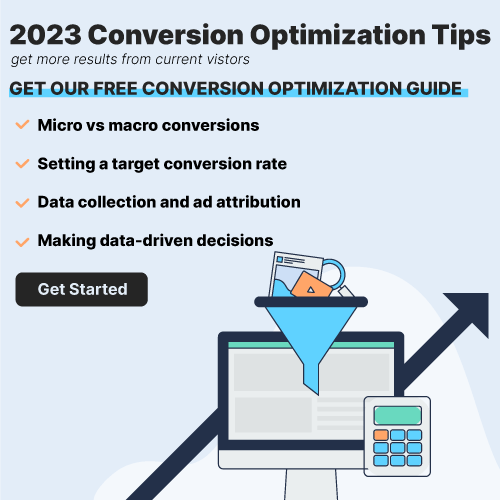The world of ecommerce is exploding with new ideas and innovations. With the growth in popularity, many people are taking their business online to reach a larger audience.
There are some advantages to selling products on the internet, but there are also some disadvantages that you should be aware of before getting started.
In this blog post, we will discuss the five advantages and five disadvantages of ecommerce so that you can make an informed decision about your next steps!
Advantages to an Ecommerce Website
1.) Reach more customers
Thanks to ecommerce, we can buy anything from anywhere. This means that you can sell to customers that are on the other side of the world! Plus, your ecommerce store is open 24/7, which allows customers to browse at their convenience.
2.) Lower costs
Ecommerce is a great way to reduce overhead and lower your costs. You can save on rent, utilities, and labor by choosing ecommerce over traditional retailing methods! With lower operating costs, you can pass savings onto your customers, which gives you an edge over brick-and-mortar businesses.
3.) Easy to conduct customer remarketing
You may want to consider using remarketing as an ecommerce strategy because it allows you to reach potential customers who have already shown interest in your products. This strategy is incredibly difficult to achieve with a physical business.

4.) Collect customer data
It is easy to get an in-depth analysis of your customers with ecommerce solutions. They use registration forms and cookies that allow us to gather invaluable information about who they are, what products interest them most, etc.
You want to tailor your communication for each customer. By knowing what they like, you can provide them with the relevant material that will impact their decision-making process. Learning more about your customers can help you provide better customer service as well!
Disadvantages to an Ecommerce Website
1.) Transaction fees
One of the disadvantages to ecommerce is that you will have to pay transaction fees. Plus, some banks may charge extra for international transactions as well.
2.) Fierce competition
When you are selling your product on ecommerce, the competition is fierce. You will be up against big brands such as Amazon and Walmart, which are both able to offer better prices that you can.
3.) No human interaction
This is the removal of middlemen, before and after production. With ecommerce, you do not have the same kind of relationship that a physical store would offer to its customers because there are often no people physically present in an ecommerce store. This can be bad for customer service. You may want to consider hiring someone just for this!
4.) Technical difficulties
Another disadvantage to ecommerce is that there are many technical difficulties. You may want to hire someone who can handle these things for you because they can be very difficult and costly!
5.) Security issues
When you are selling your products on the internet, it is important to keep an eye out for potential security issues. Every company is at risk for security fraud and phishing attacks from hackers. If you collect sensitive information, it must be protected with proper safeguards to avoid being a victim of these crimes.
6.) Interruptions in service
If there’s a power outage or some other type of disaster, ecommerce stores may not be able to function at all! This can result in lost revenue and frustrated customers. A typical problem is due to server issues, which can mean that your store is down for an extended period of time.
7.) It doesn’t suit every business
For some people, ecommerce is the best option because it offers convenience and accessibility. However, there are certain products that can’t be bought or sold online due to their sensitive or perishable nature.
The convenience of an ecommerce store is one thing that should be on your mind when deciding if it’s the right fit for you. For example, even though you can sell luxury chocolate online, it’s not great if your customers receive a lump of chocolate that melted during delivery.
Top Tips for Ecommerce Store Owners
When you are building an ecommerce store, there are some things to keep in mind:
1.) Start SEO sooner, rather than later
Work on your search engine optimization. If you have a website that doesn’t rank well for relevant search terms, people won’t find it! You will not get any traffic if nobody knows about your site. You can improve your site’s SEO by following the best SEO practices for your industry, which usually includes winning backlinks, using relevant keywords, improving site speed, optimizing for mobile, and more.
2.) Keep security in mind
Keep an eye on security issues and stay up to date with all of the newest updates! You should also have a plan in place if there is ever an emergency that has you shut down completely or just inaccessible temporarily. Your customers will appreciate knowing what their options are during your downtime.
3.) Determine which products you’ll sell
Decide what kind of products you want to sell. When choosing products, think carefully about what is going to be the most profitable and easiest-to-sell items. It’s better to specialize than try and offer everything!
To keep customers coming back for more, you need to offer new and exciting items. Regularly adding new products is a great way to stay relevant in the ecommerce industry!
4.) Test changes after they are made
One of the most challenging aspects of running an online store is trying to find out which elements lead people to buy from you. Site testing can help with this important goal, but it’s not always easy and sometimes your results may be inconclusive.
You can use A/B testing, which is a method of marketing where different versions of a webpage are shown to separate groups, which then allows you to see what works better for that group.
5.) Track & analyze your results
After you have put your store live, it’s important to track and analyze the results. If something isn’t working out or bringing in enough money for you, then adjust accordingly!
Google Analytics is the best way to track your website’s traffic. It allows you to set “goals”, displays your conversion rate, reveals what page customers are leaving your site from, etc.
Check out our ecommerce best practices post to learn more tips!
Final Thoughts on the Pros and Cons to Running an Ecommerce Website
In conclusion, ecommerce is one option for business owners. It has advantages and disadvantages, just like any other method of doing business!
Although it might not work for some businesses, ecommerce will work for the majority of businesses. It allows you to stay in business during tough times and take your company to the next level. If you think that your company is ready to take the next big step, feel free to check out our ecommerce web design service page here!

